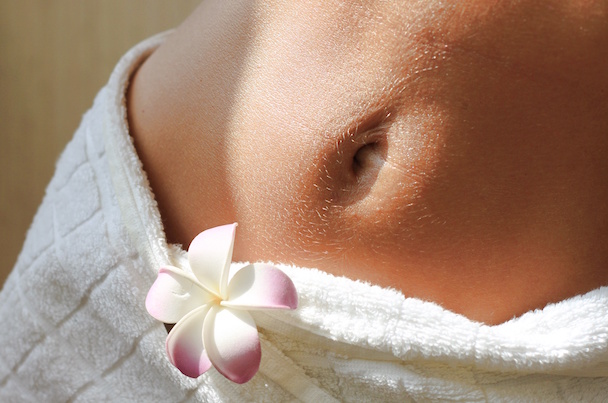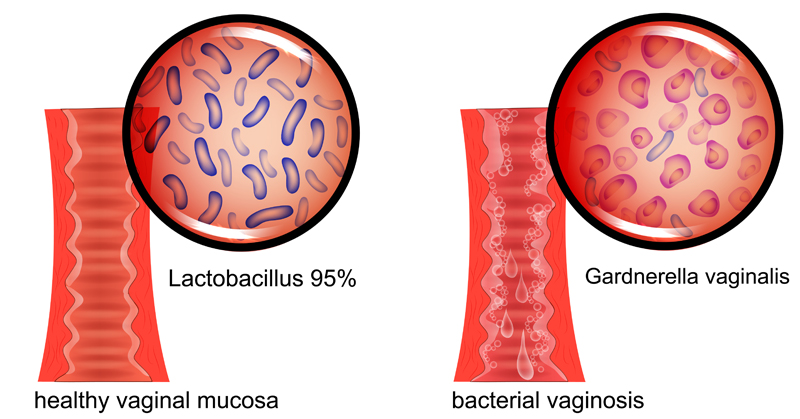Bacterial vaginosis is a vaginal infection that can come with a lot of discomfort. It’s caused by the overgrowth of bacteria that is found naturally in the vagina. The overgrowth upsets the natural pH balance of the vagina, which leads to an infection. (1) The infection can affect women of any age, but it most commonly occurs in young-to-middle age women who are pregnant, have an active sex life or are suffering from an impaired or weakened immune system. Bacterial vaginosis natural treatment methods can help get rid of the infection and balance the vagina’s pH levels. Bacterial vaginosis natural remedies also help treat bacterial vaginosis symptoms. (2) We’ll examine natural remedies for this condition, but first, take a look at some of the symptoms associated with bacterial vaginosis.
Bacterial Vaginosis Symptoms
- Discharge may be more than usual or have a musty odor or a fishy smell
- Discharge may be clumpy, creamy, frothy or turn a yellow-green color
- Urine cloudiness
- Pain during urination, when showering or during/after sex
- Burning when showering and using certain soaps
- Skin inside and around the vagina may be irritated, sensitive and red
A lot of natural remedies for bacterial vaginosis involves methods of prevention. This manifests in several ways, including boosting your immunity and avoiding common causes. There are also natural remedies available, but if your infection does not start to clear up, it’s best to visit your doctor. Read below to learn more about prevention methods and home remedies for bacterial vaginosis.

Bacterial Vaginosis Natural Remedies
1. Don’t Douche
It can be tempting and understandable to want to keep your vagina clean, especially when you get an infection. However, douching is not the way to go, even when it’s not infected. This is because douching disrupts the normal bacterial balance inside the vagina, making it a major risk factor for vaginal infections. Avoid douching to ensure that you aren’t ridding your body of the beneficial bacteria that is there to protect you from infection.
2. Avoid Harsh Soaps
It’s never a good idea to use soap on or in your vagina. In particular, commercial soaps are usually alkaline. As such, using them near your vagina can cause irritation as well as a pH imbalance. Avoid using harsh commercial soaps along with deodorant sprays and other perfumed products near your vagina, including scented pads and tampons. Instead, use warm water to cleanse your vagina in the shower. Furthermore, to help fight off infection, try taking a bath with apple cider vinegar or baking soda. (3) If you take a bath, it’s a good idea to avoid bubble bath, too. This can contribute to the likelihood of developing an infection, or could lead to other infections, such as a UTI.

3. Use High-Quality Tampons
If you’re on top of changing your tampon frequently enough, that’s definitely helpful in avoiding infections. However, it also helps if you’re picky about what type of tampon you use. Try using organic, natural tampons during menstruation and, of course, be sure to change them often. The same applies to pads. To avoid bacterial overgrowth, change tampons at least three times each day. Make sure the tampons or pads you are using are free of any harsh chemicals, dyes or perfumes. All of these ingredients can make an infection more likely to occur.
4. Talk To Your Doctor
Bacterial vaginosis can lead to other complications in women who are pregnant. An infection that goes untreated can cause premature delivery or low birth weight in a baby. (4) If you are pregnant or breast-feeding and you develop bacterial vaginosis, see your doctor for treatment. Don’t hesitate or assume the infection will go away on its own without affecting your unborn child. Furthermore, even if you are not pregnant or nursing and home remedies are not working, do not hesitate to seek medical help. Report any symptoms you’ve been experiencing, as this can help your doctor give a proper diagnosis.

5. Avoid Intercourse During an Infection
Using a condom can help prevent infections from spreading. Remember that the birth control pill does not protect against STD’s or stop the transfer of bacteria from partner to partner. If you have an infection, it’s best to abstain from sex until it clears up. Not only does having sex increase the chance of spreading the infection, but it can also cause further irritation to your vagina, which may slow down healing time.
6. Boost Your Immunity
A weakened immune system is a risk factor for bacterial vaginosis symptoms. Infections can also recur within 3-12 months if the immune system is still weak. To strengthen your immune system and reduce your risk of infection:
- Add probiotic foods to your diet to promote healthy bacteria in the gut. Try kimchi, kefir, sauerkraut and kombucha.
- Eat a healthy diet without processed foods
- Exercise regularly
- Get plenty of sleep
- Manage your stress levels
- Try neem oil for bacterial vaginosis natural treatment. Neem bark is a natural anti-fungul, antiviral and antibacterial that helps support intestinal flora and fights against infection. It can be taken in tablet or oil form. (5)


